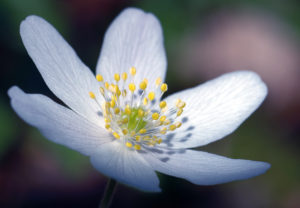 [1]Gratitude could be said to mean ‘great attitude’. Whereas gratefulness occurs in response to something, gratitude can be something that we consistently practice, rather than having to be in response to something and it’s often more about one’s state of ‘being’. When we consciously look for the good in our lives and around us, it usually brings more of that into our life – or we certainly notice and appreciate many things that would often be overlooked – this is one of the teachings of mindfulness.
[1]Gratitude could be said to mean ‘great attitude’. Whereas gratefulness occurs in response to something, gratitude can be something that we consistently practice, rather than having to be in response to something and it’s often more about one’s state of ‘being’. When we consciously look for the good in our lives and around us, it usually brings more of that into our life – or we certainly notice and appreciate many things that would often be overlooked – this is one of the teachings of mindfulness.
Even if life is challenging and difficult, cultivating and practising gratitude can help us deal with those challenges in a more productive way. You probably know someone who has a positive and sunny disposition, no matter what life throws at them and they manage to ‘bounce back’ and be resilient in the face of adversity. That’s probably because they’re a ‘glass half full’ kind of person and seek the positive in people and situations, rather than being hard-wired to seek out what is wrong in life, which many of us have become programmed to do through our conditioning and life experiences.
A famous example of someone who managed to practise gratitude despite having to endure unbearable circumstances was Victor Frankl – an Austrian neurologist and psychiatrist, as well as a Holocaust Survivor. His famous book ‘Man’s Search for Meaning’ chronicles his experiences in a concentration camp, where he managed to practice gratitude and find meaning, even in the midst of extreme suffering.
Frankl’s experience led him to discover the importance of finding meaning in all forms of existence, even the most brutal ones. Frankl believed that people are primarily driven by a “striving to find meaning in one’s life,” and that it’s this sense of meaning that enables people to overcome painful experiences. Through his observations about himself and others throughout his harrowing experiences, Frankl concluded that even in the most absurd, painful, and dehumanized situation, life has potential meaning and that, therefore, even suffering is meaningful.
Thankfully, Frankl’s experiences are not what most of us have to face in our daily lives. But often we can find ourselves spending considerable energy, trying to resist or fight circumstances or situations that may have already occurred. It’s not ‘wrong’ to not like a particular outcome and to have a preference for something different to happen or to want to change it – but engaging most of our thoughts and energy into resisting what has already occurred is futile – as we’re trying to turn back time and change something and this will keep us stuck in resistance.
Overcoming Resistance
My father was a mechanical and aeronautical engineer and he specialised in stress and structures. Often in my childhood, I’d visit him in his lab where he was stress testing different materials to find out the pressures that they could withstand. He’d use different machines to test tension and stress and find out each material’s breaking point. I remember him explaining to me that ‘resistance is a force that opposes or stops movement or motion’ and then demonstrating this with one of his testing machines. His words have stuck with me.
We can see how, as humans, when we resist something, we’re in a closed state where we’re blocking the flow of anything else being able to happen. We’re not allowing motion or movement to occur – even if that’s new, good opportunities that want to come our way instead.
If we can move more into a place of ‘acceptance’ about what’s already occurred – then we’re able to move out of that constricted, stuck state of resistance and allow the opportunity to create new motion and movement. We can still set the intention and hold the desire for an alternative or better outcome than what we’ve been left with but when we reach a place of acceptance, this brings more peaceful energy into our nervous systems are we’re no longer in fight or flight mode.
 [2]The more that we can visualise the outcome that we DO want and imagine having this in our life – feeling gratitude for it already having occurred, then we may be able to draw either that outcome, or something even better into our lives. That’s what the quantum physics model demonstrates, where the consciousness of an observer can alter matter and affect physical form at an atomic level.
[2]The more that we can visualise the outcome that we DO want and imagine having this in our life – feeling gratitude for it already having occurred, then we may be able to draw either that outcome, or something even better into our lives. That’s what the quantum physics model demonstrates, where the consciousness of an observer can alter matter and affect physical form at an atomic level.
So when we’re facing a difficult situation or something happens that we don’t like, it’s a helpful practice to hold the intention that everything will work out for the highest good of all concerned. If we keep feeling gratitude and remain open to the possibility that everything will work out well, then we can use this quantum ‘observer effect’ to create new, positive outcomes. We may even alter the outcome of the situation, as our consciousness is one of openness and trust that all will work out and a beneficial outcome will be achieved.
Creating New Possibilities
We never know what other good things may come our way, so a good practice to try to cultivate more of a great attitude and create new opportunities is to be grateful for EVERY condition or circumstance in our life, no matter how imperfect you imagine it to be.
This will help move you out of resistance and start to open up your energy field for something new and different to show up instead. See if you can be willing to consider the possibility that maybe this has occurred to create a new, better opportunity, or to help you have clarity about what you do want, rather than what you don’t want. Even if you’re sceptical, holding even a small chink of willingness will help you to shift perspective and create space for change to occur. See my other blog post about Rumi’s poem ‘The Guesthouse [3]‘, where he suggests you ‘welcome and embrace’ all the things that come into your life ‘as they may be clearing you out for some new delight’.
In my own life, I’ve used gratitude to enable me to move through difficult times and to create my life anew. Similarly, many of the people who have achieved great things in life and become masters of their craft have done this through overcoming adversity, failures and setbacks. It’s these that have caused them to reach within and to cultivate grit, persistence and a strong inner drive. They often practice gratitude for whatever is going well and also for the hurdles that they’ve overcome in their pursuit of mastery, as this was what enabled them to develop strength and resilience and often dramatically altered the course of their lives.
Find this interesting? Want to read more free articles like this? SIGN UP HERE [4] to receive fresh insights and perspectives and the latest research on careers, wellbeing, happiness, mindset, relationships, improving productivity and work-life balance. We promise to respect your inbox and won’t share your details and look forward to helping you thrive in your life, work and business. Thank you for connecting!